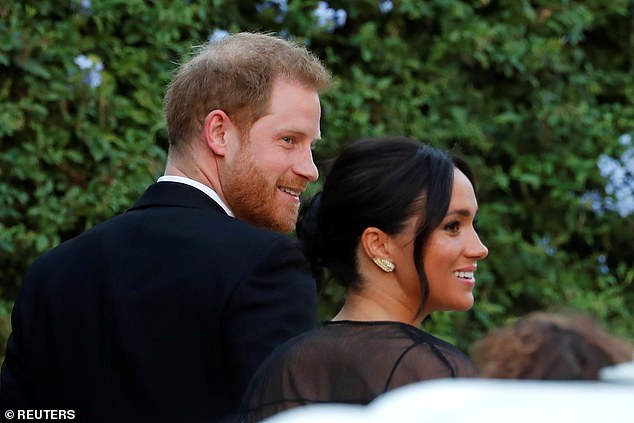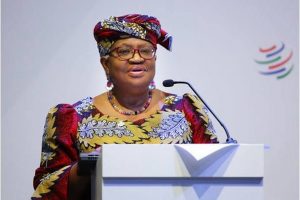Royal visit highlights South Africa’s gender-based violence problem

The couple was welcomed at Justice Desk, an organization that works to empower women and teaches children about their rights and safety in their community. The mood was jovial, as children danced and sang with the couple. But the royal visit takes place at a time when South Africans are reeling from a devastating scourge of gender-based violence and femicide. Women and children are under siege in South Africa. That message was central to both Harry and Meghan’s addresses to the small crowd gathered in Nyanga on Monday.”The work being done to keep women and children safer, which is needed now more than ever, is at the forefront of South Africans and across the globe, particularly over this past month,” the duchess said.The rape and murder of a 19-year-old University of Cape Town student Uyinene Mrwetyana in a post office in Cape Town last month, caused shockwaves across the country. Around the same time, the country learned about the murders of two other young women: South African boxing champion Leighandre Jegels and University of the Western Cape theology student Jessie Hess. The outrage at these murders led to widespread protests calling for government to act with urgency, and for the private sector to contribute to the fight against gender-based violence and femicide. Meghan secretly visited a memorial for Mrwetyana earlier this week, Buckingham Palace confirmed to CNN. First reported by British newspaper The Sun, the Palace said the duchess had “closely followed the tragic story” and wanted to make the pilgrimage privately as a “personal gesture.”The first of the protest marches took place in Cape Town during the World Economic Forum on Africa.Thousands of women and schoolgirls took to the streets, calling for South African President Cyril Ramaphosa to commit to action. The protest was followed by a march in Johannesburg to shut down Sandton, the richest square mile on the continent and the hub of private capital in South Africa. Protesters handed over a memorandum of demands to the outgoing CEO of the Johannesburg Stock Exchange, Nicky Newton-King. One of the demands is for 2% of profits from JSE-listed companies to be channeled towards the efforts to end violence against women and children. A collective of more than 70 civil society organizations was behind the shutting down of Sandton and have since met with business to discuss possible funding and accountability measures. Other demands included transport for women who have to travel in the early hours of the day to get to work and the closing of the gender pay gap in corporate South Africa.The organizer of the protest, Mandisa Khanyile, has welcomed the support expressed by the royal couple in the fight against gender-based violence. She said she hopes there will be meaningful support to existing programs in need of resources and funding. These programs reach out “to communities, shebeens and schools to ensure that gender-based violence is constantly spoken about and people are made aware of the behavior and beliefs that cause it,” she said.Journalist and gender activist Nolwazi Tusini said the purpose of royal visits of this nature is at times unclear, particularly in the bigger fight for human rights and justice. There is an expectation for those with influence to do more than merely encourage people who are doing the challenging work of fighting injustice. Both Harry and Meghan encouraged activists to keep going in their work. But Tusini said she expected more from the influential couple. “I have big support for Meghan as a woman of color,” she said. “I think her speech was inspiring. However, Black South African women are living lives where inspiring speeches are no longer enough for us,” she said, adding: “If they were enough, we would not be having rolling protests to highlight gender-based violence and violence against queer bodies and children in this country.” She said she would have liked for her to indicate how she would leverage her influence to help. The duchess commended the plans announced by President Ramaphosa, who canceled his trip to the United Nations General Assembly, and called for a special joint sitting of Parliament on gender-based violence. “We are encouraged to hear your President take next steps to work towards preventing gender-based violence through education and necessary changes to reinforce the values of modern South Africa,” Meghan said.Ramaphosa announced a six-month long Emergency Action Plan that will focus on preventing gender-based violence, strengthening the criminal justice system, enhancing legal and policy frameworks and improving the economic well being of women. The focused implementation of the emergency action plan, engagement with the private sector and on going media campaigns on gender-based violence will be the difference between turning the tide on a nationwide crisis, or heading deeper into a state of emergency that is already difficult to recover from. For the work activists and women are doing in the daily fight against gender-based violence in South Africa, Markle ended her address by quoting poet and civil rights activist, Maya Angelou, who wrote: “Each time a woman stands up for herself, without knowing it, possibly without claiming it, she stands up for all women.”







